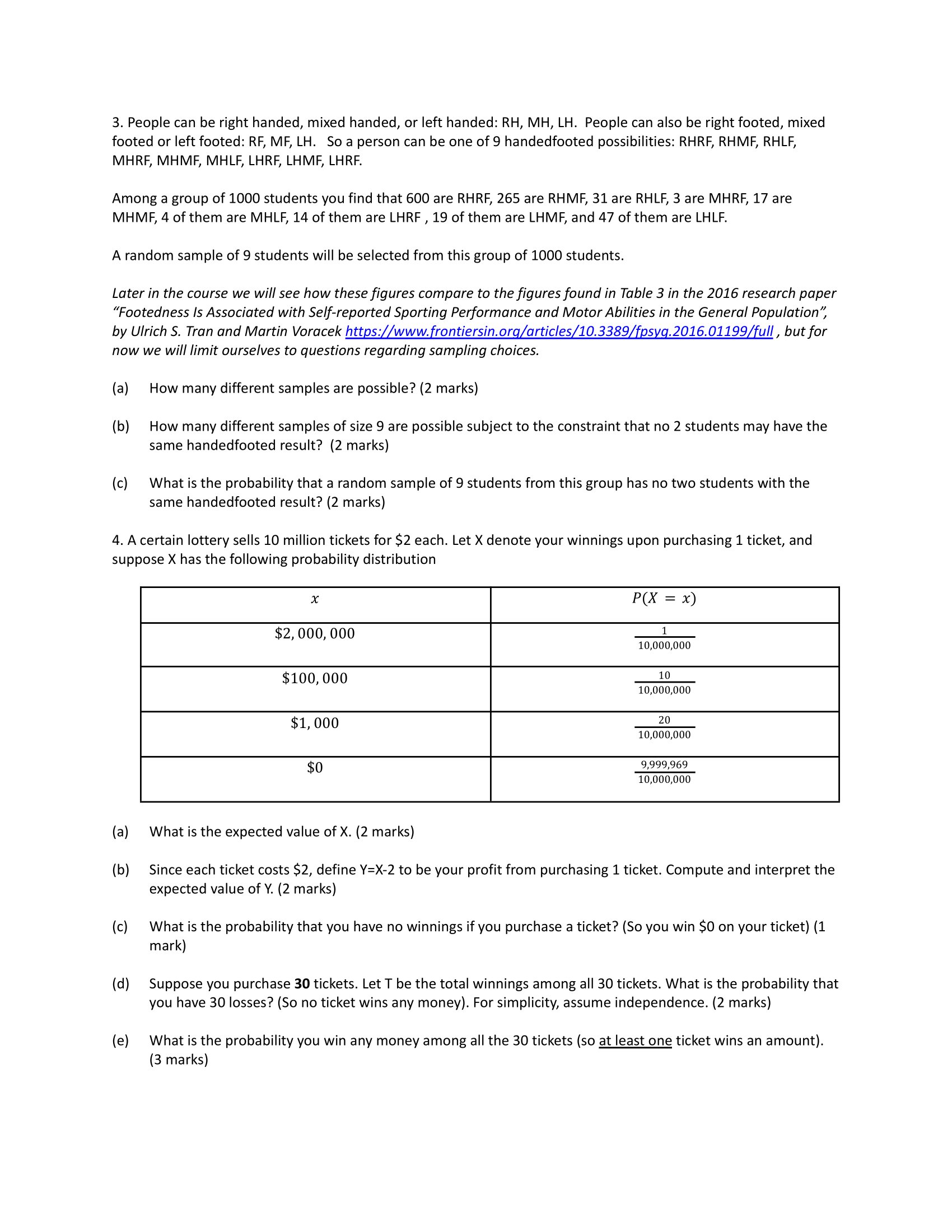Answered step by step
Verified Expert Solution
Question
1 Approved Answer
3. People can be right handed, mixed handed, or left handed: RH, MH, LH. People can also be right footed, mixed footed or left

3. People can be right handed, mixed handed, or left handed: RH, MH, LH. People can also be right footed, mixed footed or left footed: RF, MF, LH. So a person can be one of 9 handedfooted possibilities: RHRF, RHMF, RHLF, MHRF, MHMF, MHLF, LHRF, LHMF, LHRF. Among a group of 1000 students you find that 600 are RHRF, 265 are RHMF, 31 are RHLF, 3 are MHRF, 17 are MHMF, 4 of them are MHLF, 14 of them are LHRF, 19 of them are LHMF, and 47 of them are LHLF. A random sample of 9 students will be selected from this group of 1000 students. Later in the course we will see how these figures compare to the figures found in Table 3 in the 2016 research paper "Footedness Is Associated with Self-reported Sporting Performance and Motor Abilities in the General Population", by Ulrich S. Tran and Martin Voracek https://www.frontiersin.org/articles/10.3389/fpsyg. 2016.01199/full, but for now we will limit ourselves to questions regarding sampling choices. (a) How many different samples are possible? (2 marks) (b) (c) How many different samples of size 9 are possible subject to the constraint that no 2 students may have the same handedfooted result? (2 marks) What is the probability that a random sample of 9 students from this group has no two students with the same handedfooted result? (2 marks) 4. A certain lottery sells 10 million tickets for $2 each. Let X denote your winnings upon purchasing 1 ticket, and suppose X has the following probability distribution x $2,000,000 $100,000 $1,000 $0 P(X = x) 1 10,000,000 10 10,000,000 20 10,000,000 9,999,969 10,000,000 (a) What is the expected value of X. (2 marks) (b) (c) (d) (e) Since each ticket costs $2, define Y=X-2 to be your profit from purchasing 1 ticket. Compute and interpret the expected value of Y. (2 marks) What is the probability that you have no winnings if you purchase a ticket? (So you win $0 on your ticket) (1 mark) Suppose you purchase 30 tickets. Let T be the total winnings among all 30 tickets. What is the probability that you have 30 losses? (So no ticket wins any money). For simplicity, assume independence. (2 marks) What is the probability you win any money among all the 30 tickets (so at least one ticket wins an amount). (3 marks)
Step by Step Solution
There are 3 Steps involved in it
Step: 1

Get Instant Access to Expert-Tailored Solutions
See step-by-step solutions with expert insights and AI powered tools for academic success
Step: 2

Step: 3

Ace Your Homework with AI
Get the answers you need in no time with our AI-driven, step-by-step assistance
Get Started


